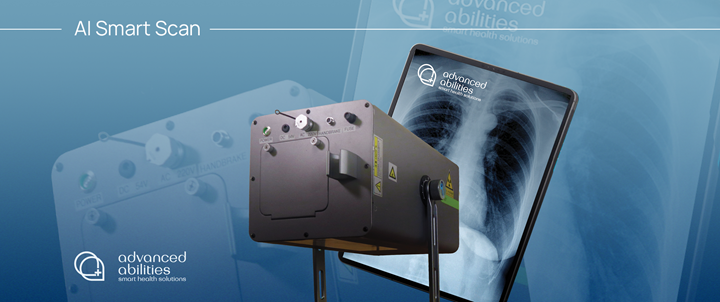
It has become increasingly apparent that the fight against tuberculosis (TB) in the Philippines is more urgent than ever. Just in 2023, over 600,000 TB cases were recorded, and the national government has since then allocated more funding into combatting this disease. With more efforts being placed into preventative measures, there’s an opportunity to adopt more modern solutions like artificial intelligence (AI) to effectively support this mission.
The recently-launched portable AI-driven x-ray system, Advanced Abilities AI Smart Scan, is capable of detecting 32 pathologies and/or conditions, including TB. It can deliver up to 200 scans in 8 hours, cutting turnaround times from days to minutes, which ensures timely intervention and enhanced patient outcomes.
While those features sound attractive, the prospect of using AI may still seem daunting to many. However, there are cases in the Philippines that have shown that AI has been a useful tool for early detection of TB. For instance, it was reported in February 2024 that TB screening had become available in the Cordillera region through a DOH-CAR mobile TB clinic, featuring the latest AI technology that can spot the presence of TB. In terms of a long-term approach, the DOH has been planning to adopt a shorter TB treatment scheme by the latter half of 2024, with AI being used through radiographs to catch signs of TB.
That being said, there is a strong possibility for AI Smart Scan to be a part of current and future initiatives that can help speed up the detection of TB in the Philippines. Most recently, Advanced Abilities hosted a medical outreach that utilized AI Smart Scan to evaluate 503 patients in the municipalities of San Fernando and Magdiwang in Romblon. Of the 503 patients, 424 of them had findings, with 63 of them having detected TB.
“We are pleased to be able to bring our AI Smart Scan to Romblon, and contribute to the initiatives towards early TB prevention. We believe that this shift towards AI-assisted technology is the right direction for the local healthcare system to improve its performance and speed up TB detection,” shared Angelo Antonio “AA” Buendia, CEO of Advanced Abilities.
On an international scale, AI Smart Scan has also been used in different parts of the world and is being integrated into local healthcare systems. In Chennai City, India, there were 20 per 100,000 subjects identified with TB before AI. With AI SmartScan, there are now 500 per 100,000 patients, resulting in a 25-fold increase in finding TB patients.
The case also stands strongly in Singapore, where AI Smart Scan’s software, Augmento, is the current national radiology AI platform. As of writing, there are five listed government hospitals on the platform including Changi General, Singapore General and very soon, Tan Tock Seng, aiming to eventually have all twenty-six government hospitals on the platform.
“The progressive advancement of technology is giving us more opportunities to find ways to keep up the fight against TB. As such, we are looking forward to developing our devices and conducting more outreach programs that can help more Filipinos possibly catch early signs of the disease,” says Buendia.
With AI technology being gradually woven into both local and international healthcare systems, ushering AI Smart Scan into the Philippines should potentially contribute to lessening the number of tuberculosis cases with its quick turnaround times. This investment will be a step into a more modern and progressive healthcare system that will benefit the lives of Filipinos.

